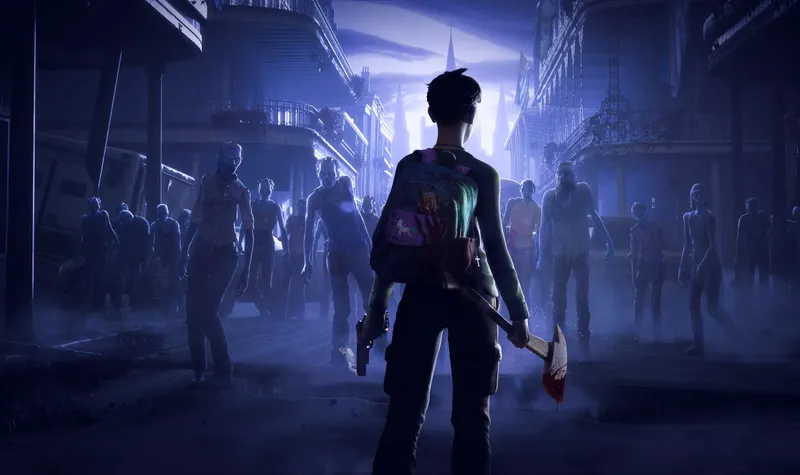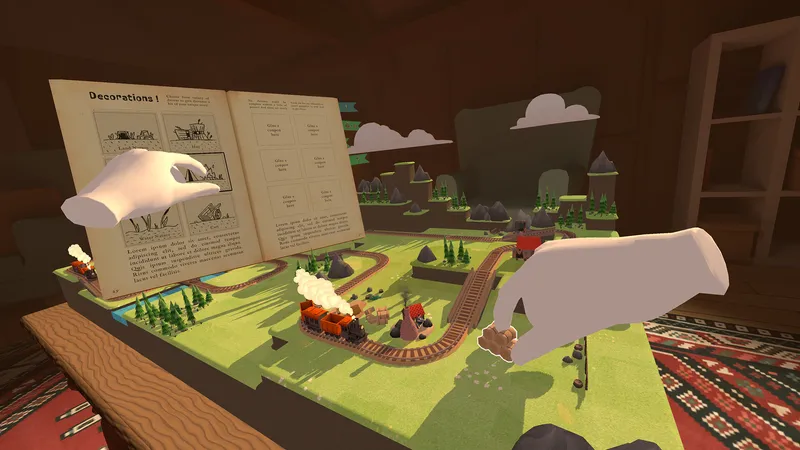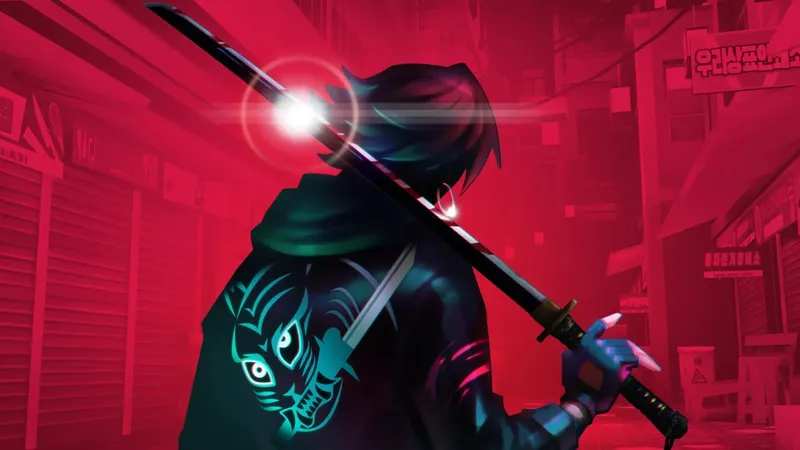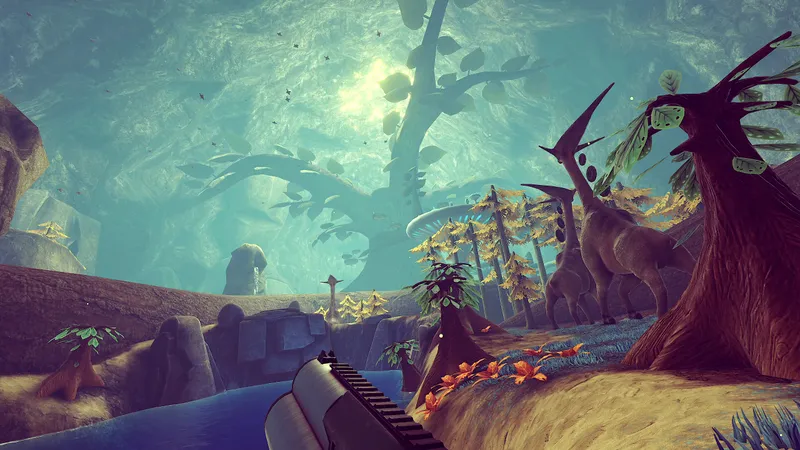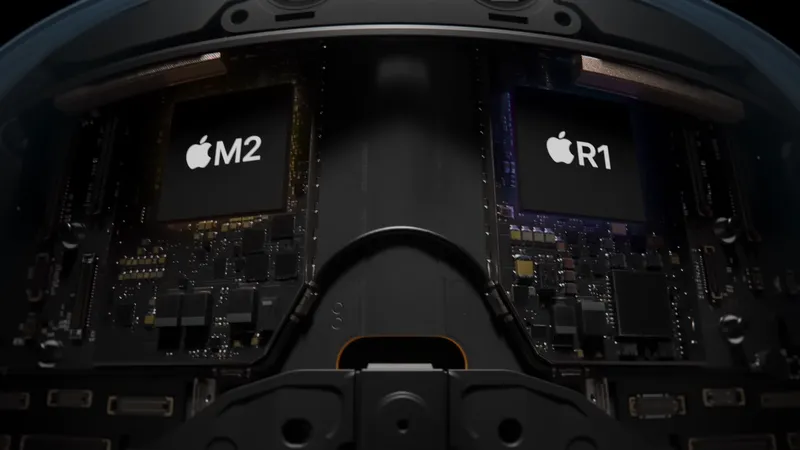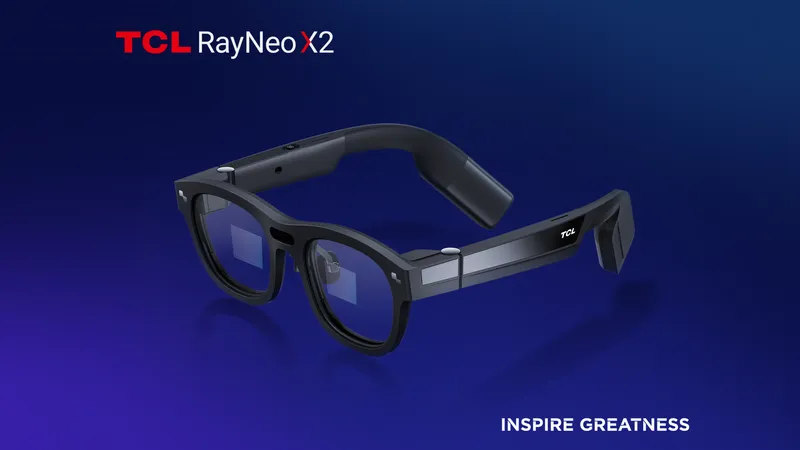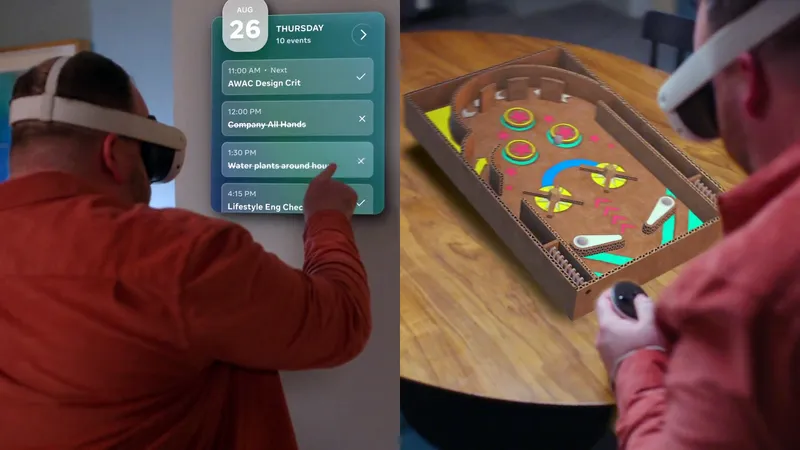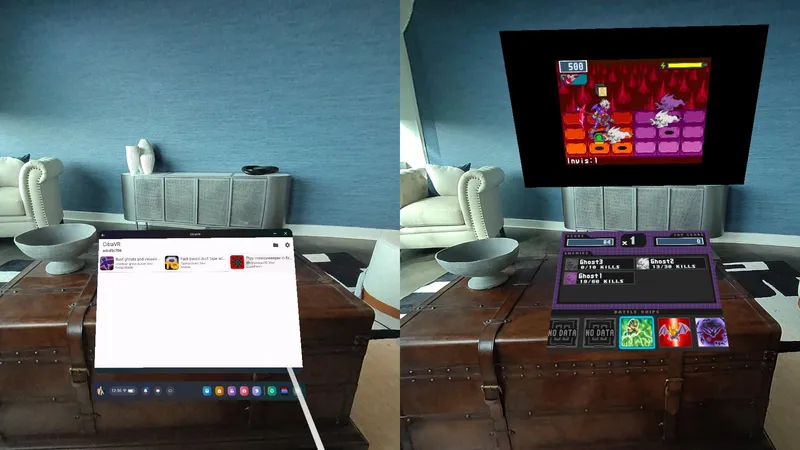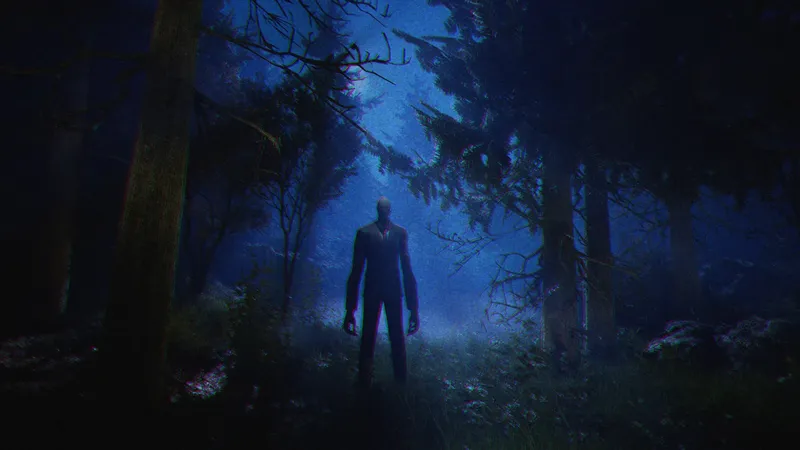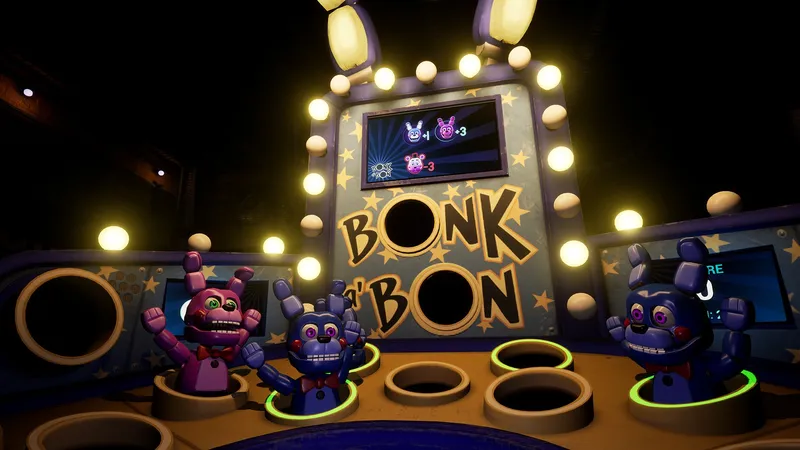Seven years after the release of Vertigo, the sequel is now available for PC VR headsets. Vertigo 2 features an expansive campaign with witty writing, fantastic mechanics and endlessly creative gameplay. Read on for our full Vertigo 2 PC VR review.
When Vertigo released in 2016, virtual reality was in a very different place. While the indie VR release proudly wore its Half-Life inspirations on its sleeve, Valve itself had yet to release a flagship VR title. Half-Life: Alyx, alongside other landmarks like Boneworks and Saints & Sinners, were still several years out. Even when Vertigo Remastered released a few months after Alyx in mid-2020, it was still a 2016 VR game at heart that was “laying the foundations for what’s to come.”
Platforms: PC VR via Steam
Release Date: March 30
Developer: Zulubo Productions
Price: $30
Vertigo 2 is a game built on those strong foundations, elevating the series to a whole new level of quality. No longer purely inspired by Valve’s flatscreen classics, this sequel pays respect to a pantheon of VR releases from the last decade. Integrating the lessons learned from those titles alongside its own innovations, Vertigo 2 offers a fantastic single player campaign on PC VR with a scale so epic that it’s hard to believe it’s largely the product of one developer.
Zach Tsiakalis-Brown heads up Zulubo Productions, the indie studio behind Vertigo 2. Others helped in the conception of Vertigo’s world and there were some additional hands onboard for specific elements of Vertigo 2’s development, but Tsiakalis-Brown is the driving force that brought the game to reality. He’s credited for the code, sound, writing and more – an impressive breadth in talent.
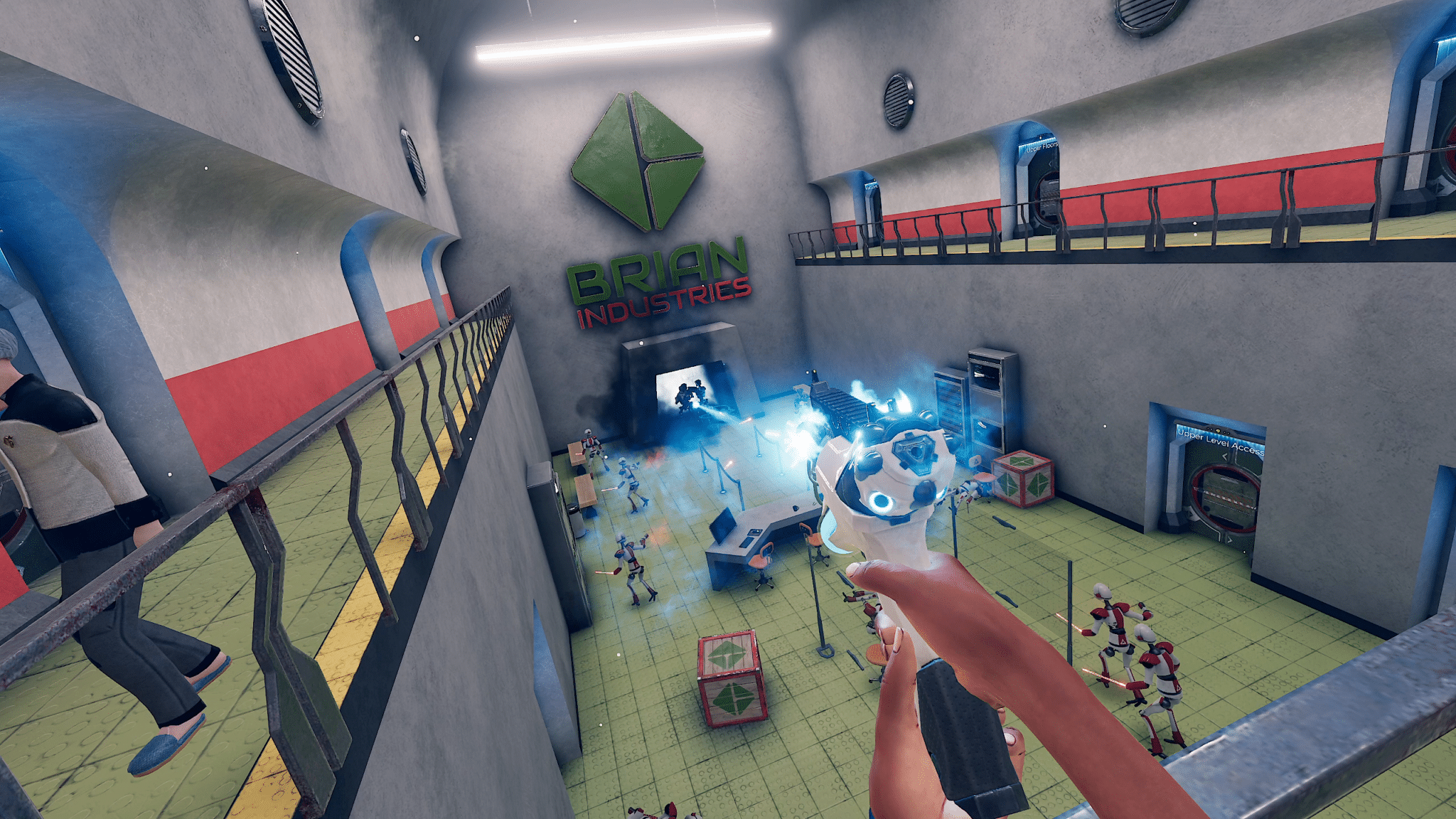
A Meaty Campaign
Compared to the original, Vertigo 2 features a lengthier campaign – clocking in at around 10 hours – with more of just about everything. There’s show-stopping cinematic moments, a plethora of diverse enemies (including countless unique boss battles) and a gamut of satisfying weapons to choose from. It’s a campaign that never stop surprising you with its manic creativity, while still managing to feel cohesive.
Just like the original, it’s also a campaign that’s very much inspired by Valve. At a base level, this means there’s some overt (and some subtle) references, such as the brief appearance of a crowbar weapon, alongside longer and more direct homages to specific flatscreen classics that Valve fans are sure to appreciate. However, an appreciation for Half-Life: Alyx is also evident throughout Vertigo 2, in big and small ways. Being able to wear a construction hard hat, for example, is a nice reference for those in the know, but there are stronger design cues that it references as well.
Vertigo 2’s campaign also shares structural similarities with Alyx. You play as a silent protagonist forced through increasingly twisted scenarios, often at the whim of charming or dodgy side characters. Separated into 18 distinct chapters, Vertigo 2 takes the pacing of Alyx and mixes it with the witty anti-capitalist satire of Portal and some gameplay elements of classic Half-Life titles.
That said, those influences aren’t to the detriment of enjoying the experience on its own merits. This is still a solid single player VR campaign that transcends being just a ‘Valve-like’.
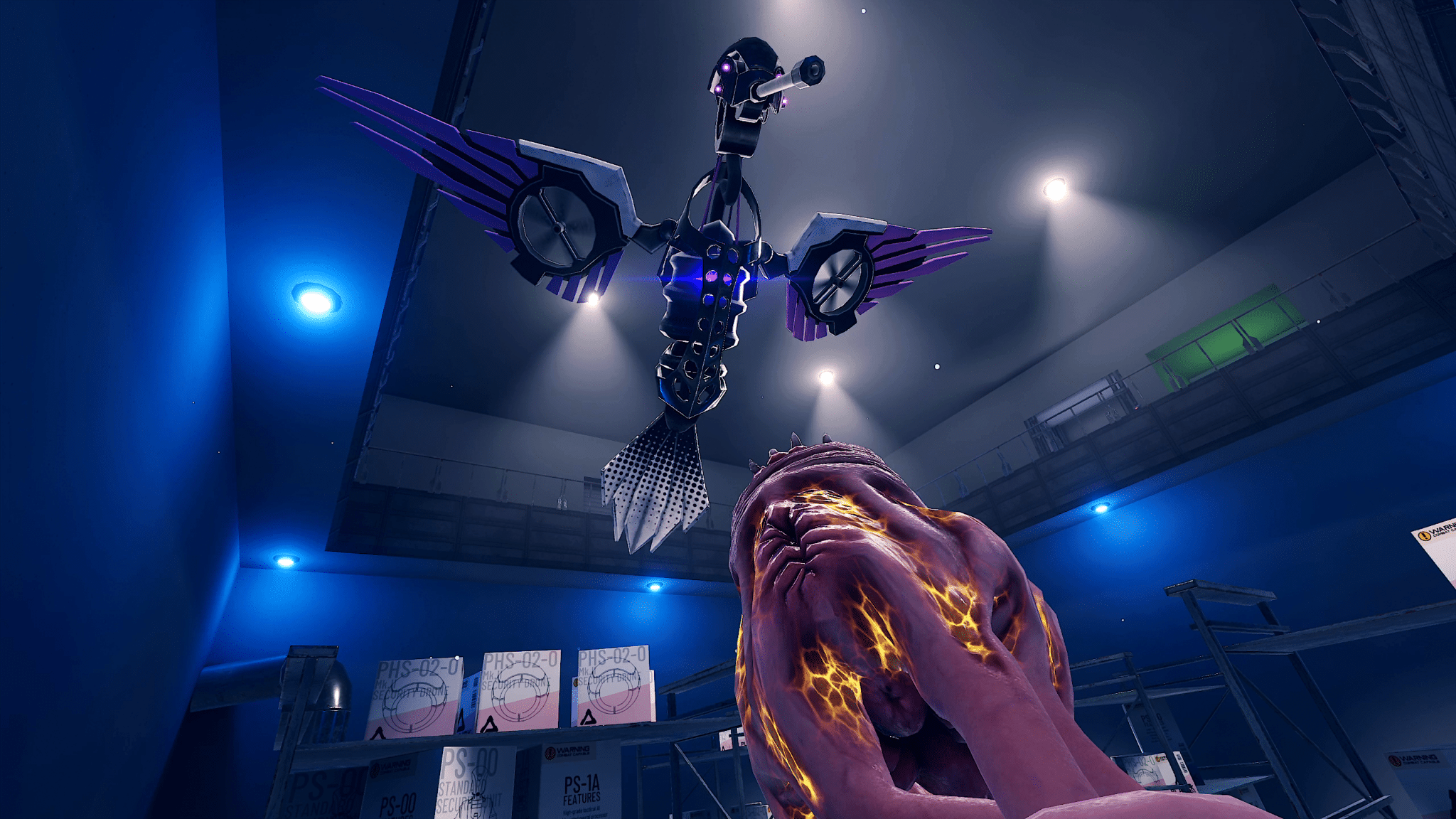
Locked and Loaded
Continuing the story from Vertigo, you’ll work your way through Quantum Reactor VII, trying to reach the reactor core while alien creatures and environments seep through from other universes to get in your way. Gameplay is a mixture of light environmental puzzles, navigation and gun combat, all of which blend perfectly to create great moment-to-moment pacing. It’s a testament to the Valve-inspired design that Vertigo 2 doesn’t once direct the player with any form of navigation or UI waypoints. Environmental clues and emergent storytelling do all the work in that regard, effortlessly leading the player from one place to the next.
The combat is just as seamless and Vertigo 2’s guns are among the most satisfying I’ve used in VR, striking a perfect balance between creativity, realism and engaging mechanics. You’ll start with a classic plasma pistol, then gradually unlock Vertigo 2’s sci-fi variations on classic weapon types like shotguns, magnums, rifles and railguns.
You can use the guns with casual technique, but there’s precision to be found in the mastery of each weapon’s learning curve. Aiming down the barrel, each gun has a unique crosshair that will only align properly when you fastidiously adjust the angle of your shot. There’s a slightly different sweet spot for every weapon, which also each possess distinctive recoil and weight distribution. You’re constantly improving your technique with your favorite firearms, even towards the end of the campaign.
The ammo system is also incredibly intuitive, enabling fast and precise manual reloading while also encouraging frequent weapon switching. The available ammo for each gun automatically replenishes over time, and every weapon has three available magazines, placed right beside your hip. Each time you grab ammo to reload, the weapon’s corresponding magazine slot begins to replenish over time, at a different rate for each weapon.
The ammo slots for basic weapons, like the plasma pistol, refill almost instantly. This means you’ve always got an available magazine to reload, making plasma pistol ammo near-infinite. More impactful weapons will replenish ammo slower, encouraging you to shoot your shots and switch to a different gun while ammo replenishes. This system naturally encourages exploring all the game’s weapons, while also sparing the player from the tedium of environmental ammo discovery and menu-based inventory management. The process for manual reloading is also slightly different for each weapon, with nuances that give you another angle to master during combat.
Comfort
Vertigo 2 includes options for teleport movement and stick-based smooth locomotion systems. The game features sequences aboard moving vehicles, airplanes and boats, as well as some sudden drops. There’s a plethora of comfort options available, including vignetting, smooth/snap turning, and head or hand-based locomotion direction. There’s also a sway reduction option for boats and other moving vehicles.
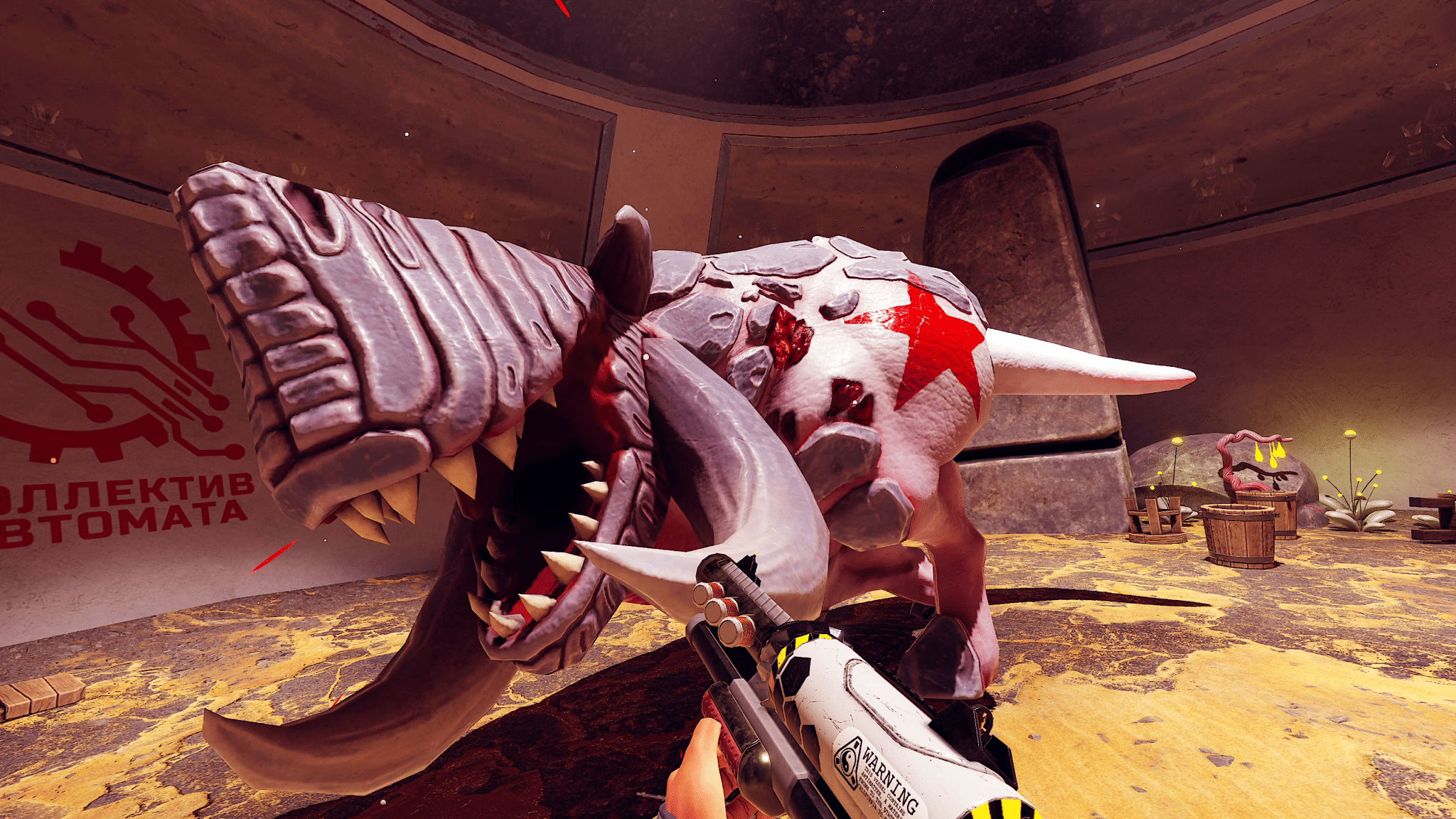
Robos and Dinos and Aliens… Oh My!
Vertigo 2 features a dazzling selection of creative enemy types. There are floating eyeballs, hyperactive cube-shaped robots with machine guns, flaming lava rock aliens, dinosaurs big and small, somersaulting robot mechs and savage arrow-shooting centaurs, to name a few. Even the ‘standard’ robot enemies come in creative variations, such as fast-moving sniper bots or semi-invisible ninja stealth bots.
Each of these creative enemies present unique strategic challenges, the solution to which is often hinted at in their brilliant visual design. This is arguably where the game transcends its Valve-inspirations, offering much more variety in combat than Half-Life: Alyx. There’s a Nintendo-like pacing in the gradual introduction of new enemies. You start the campaign with foes presenting basic challenges – exaggerated physical attacks or slow-moving projectiles – and progress to ones with more complex movement and attack patterns. Later stages of the campaign pit the player against progressively difficult combinations of enemies, new and old, eventually culminating in a spectacular climatic battle.
Between the refreshing variety in enemy types and the gradual pace of weapon unlocks, Vertigo 2 constantly keeps you on your feet.
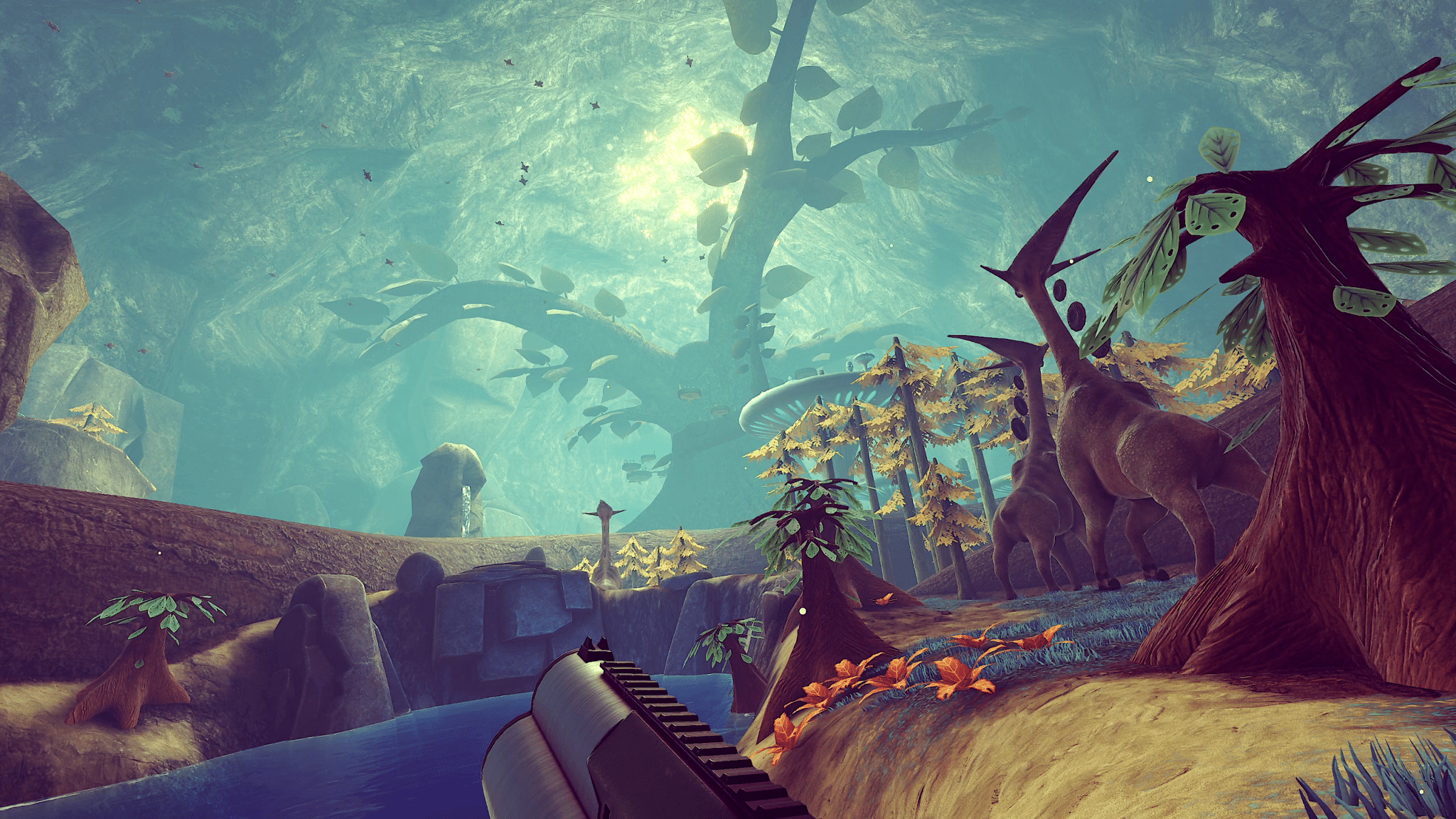
Stunning Environments & Epic Moments
On a visual level, Vertigo 2 is a huge step up from the original game and its Remastered counterpart, not just in terms of graphics but also art style. It’s still evidently an indie title – don’t go in expecting Alyx or Call of the Mountain’s level of detail – but it punches well above its weight and often looks spectacular.
There’s a distinct playful art style that permeates everything you look in Vertigo, from the environments to the enemies and the gun models.It’s not all perfect – Brian’s character model is an understandable weak point, for example, alongside some occasional low detail textures – but what it lacks in fidelity it makes up for in flair and strong direction.
The visuals are also enhanced by the epic scale of the environments and set pieces, which go well beyond the corporate confines of the Quantum Reactor. The game presents some dramatic vistas and physically huge areas across drastically different settings in each chapter.
The combination of stunning environments and creative gameplay scenarios becomes a recipe for some truly unforgettable moments. It’s hard to get too specific without delving into spoilers, but here are just some of many crazy moments you’ll experience in the campaign: fighting in the trenches of a robot civil war, getting stuck inside an animal’s stomach, exploring a Zelda-like civilization of seedling creatures, and fending off enemies in a high-speed boat chase through stormy weather. And that’s just scratching the surface.
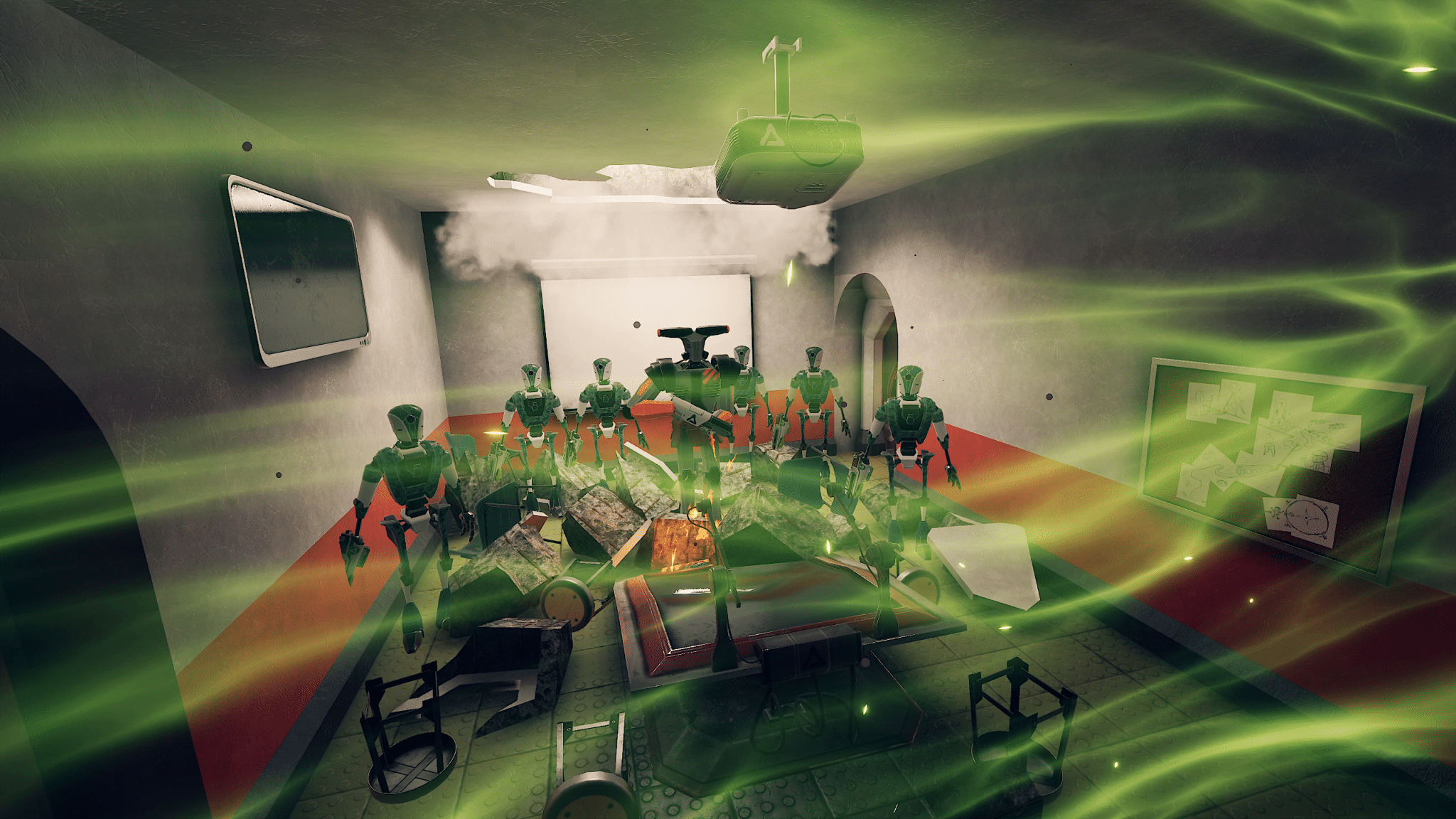
Strong Writing & Minor Issues
Vertigo 2’s campaign concludes the story that began with Vertigo, while still hinting at other potential avenues for the series to explore in the future. The narrative features witty and highly satirical writing, dipped in a dose of snide towards corporate culture and the woes of capitalism. There’s an array of amusing voice-acted side characters, with generally good performances and strong dialogue across the board. It’s also a very funny game, with some genuine laugh out loud moments and a narrative tone that perfectly captures a Valve-like cynicism without falling into pastiche.
The strength of the game’s writing is what allows its campaign to explore such varied scenarios without ever feeling like it’s jumped the shark. The often-political tinge to the game’s craziness grounds the sci-fi metaverse narrative – an area in which the equally-zany but morally-limp Virtual Virtual Reality 2 failed.
There’s also over two hours of original soundtrack in the game, featuring music that matches the visual tone perfectly and sets the mood just right. Spatial audio is also employed quite effectively during gameplay, allowing you to easily identify the location of events happening outside of your field of view.
Despite all the above, there are a few minor issues and bugs on release. The game’s automatic save points are frequent and often well-placed. However, a small selection will trigger in less-than-ideal situations, such as the beginning of a combat encounter while on very low health and surrounded by enemies. There were also a few minor bugs and crashes during my playthrough, but none that prevented me from enjoying the game or advancing forward. Playing on a PC that falls well beyond the recommended specifications, I found performance to be mostly solid at 90 FPS on max visual settings, with very occasional hitches or chugs during the game’s most intense sequences.
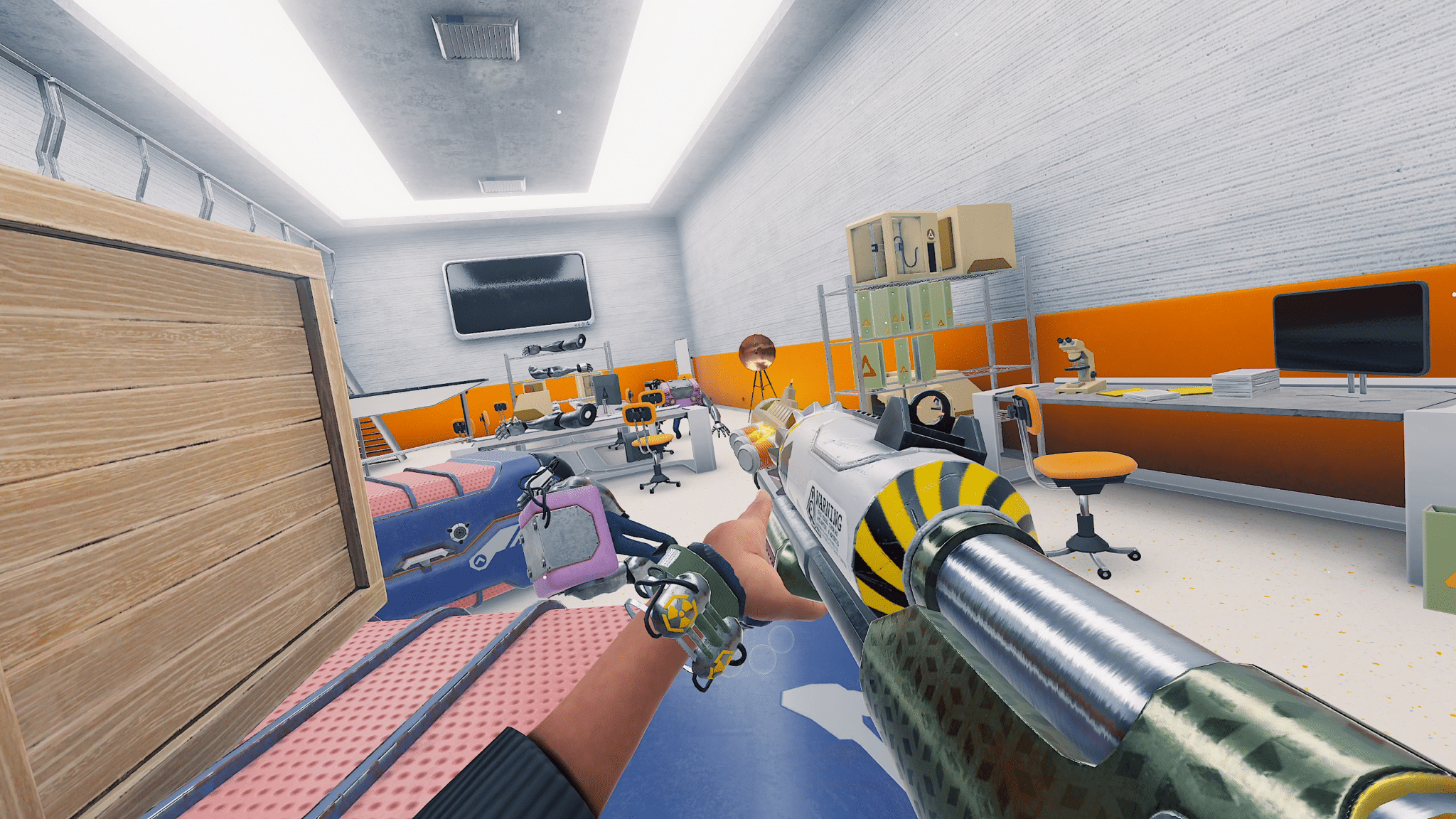
Vertigo 2 Review – Final Verdict
Vertigo 2 is easily one of the best PC VR releases of the last few years. It pays homage Valve classics and others VR releases, but doesn’t fall victim to imitating them. Instead, it uses those inspirations to pave its own way forward and create a uniquely satisfying and epic single player experience.
The result is a game that features impressive visuals, amazing gunplay and a constant expression of creativity in both its game design and its world. For PC VR players looking for a solid single player campaign in the vein of Half-Life: Alyx, it’s an essential pick.

UploadVR focuses on a label system for reviews, rather than a numeric score. Our reviews fall into one of four categories: Essential, Recommended, Avoid and reviews that we leave unlabeled. You can read more about our review guidelines here.





